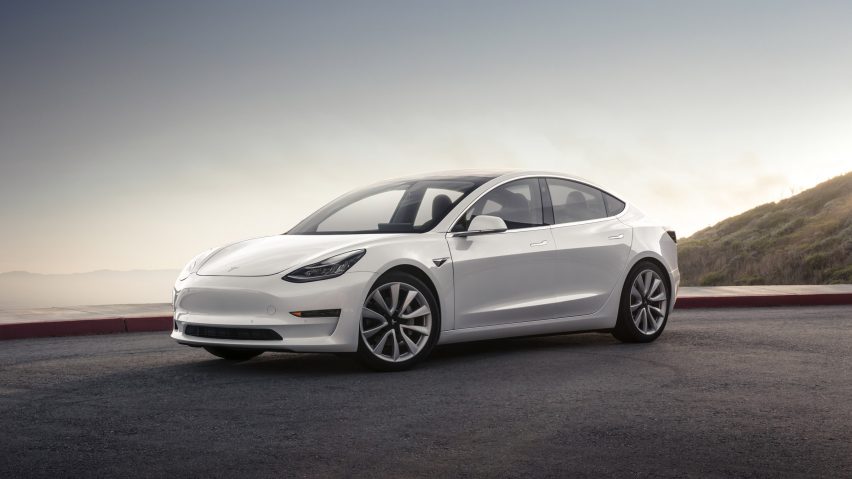
Tesla unveils "first mass-market electric vehicle" the Model 3
Elon Musk's electric car company Tesla has achieved a long-held goal with the launch of the Model 3, its most affordable vehicle to date.
The Model 3, which launched on Friday, is being positioned by the company as "the world's first mass-market electric vehicle" and selling for a starting price of $35,000 (£26,500) in the US.
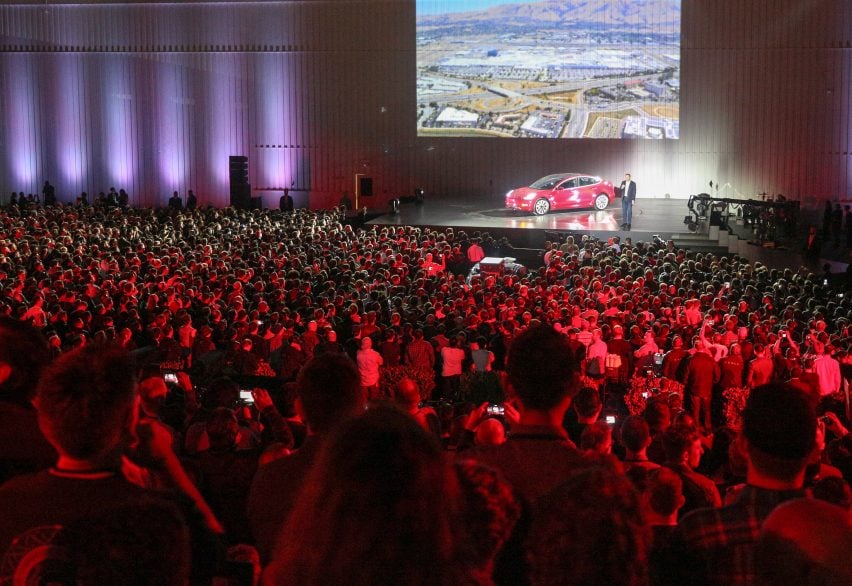
A mid-size, four-dour sedan, the Model 3 is designed as a family car that is accessible to a broader market. It joins the Model S, a luxury sedan, and the Model X, an SUV, in Tesla's all-electric line-up.
The launch of the Model 3 realises the ambitions of Musk's first master plan for Tesla, written in 2006. It outlined how he would go from producing a few high-performance sports cars to mass-producing family cars – and in turn, help to reduce global carbon emissions.
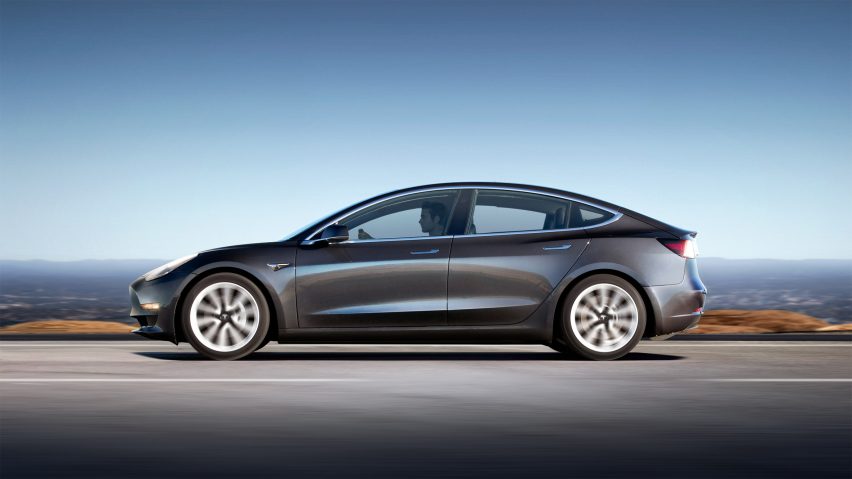
At the time, he summarised his plan as: "Build sports car. Use that money to build an affordable car. Use that money to build an even more affordable car."
The "sports car" was Tesla's first vehicle, the Roadster, which has since gone out of production.
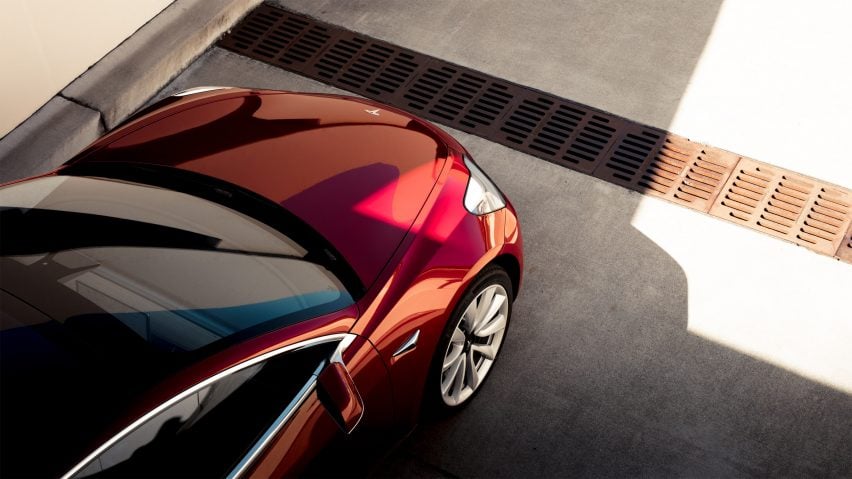
Musk said that engineering the Model S to be cheaper to manufacture than Tesla's previous offerings had been the biggest challenge.
"We had to engineer it to be a lot easier to build," he said in a speech at Friday's launch event, at which the first Model 3s were delivered to early buyers. "The Model S is an amazing car but it's very hard to build. We had to get the part count down, design it still to be light, but make it very affordable."
The Model 3 will come with a 220-mile-range (354-kilometre) battery as standard, with the option to upgrade to a long-range battery with a capacity of 310 miles (499 kilometres).
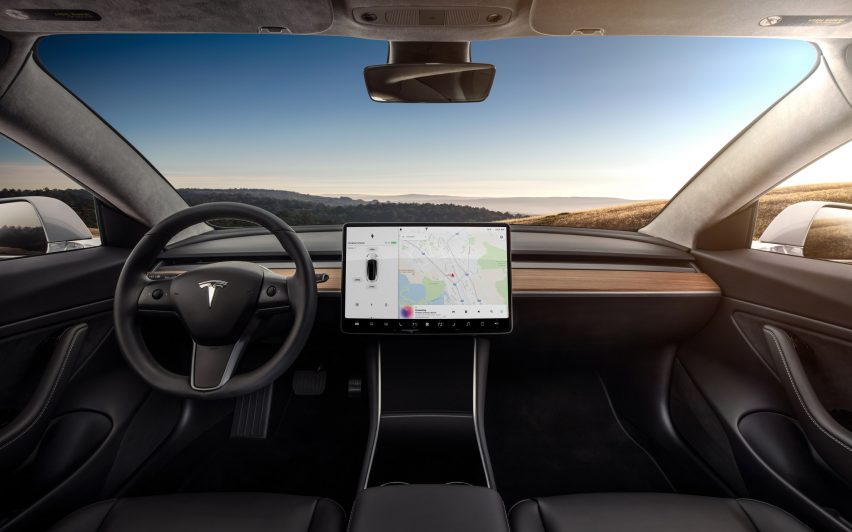
Inside, it is notable for its minimal interiors, with almost all dashboard instruments hidden from view. Musk said the interior was designed with the transition to full autonomy in mind.
"We aimed for something that was a very simple clean design because in the future – or really, the future being now – the cars will be increasingly autonomous, so you won't really need to look at an instrument panel all that often," he said.
"You'll be able to do whatever you want – watch a movie, talk to friends, go to sleep. Every Tesla being produced right now has all of the hardware necessary for full autonomy."
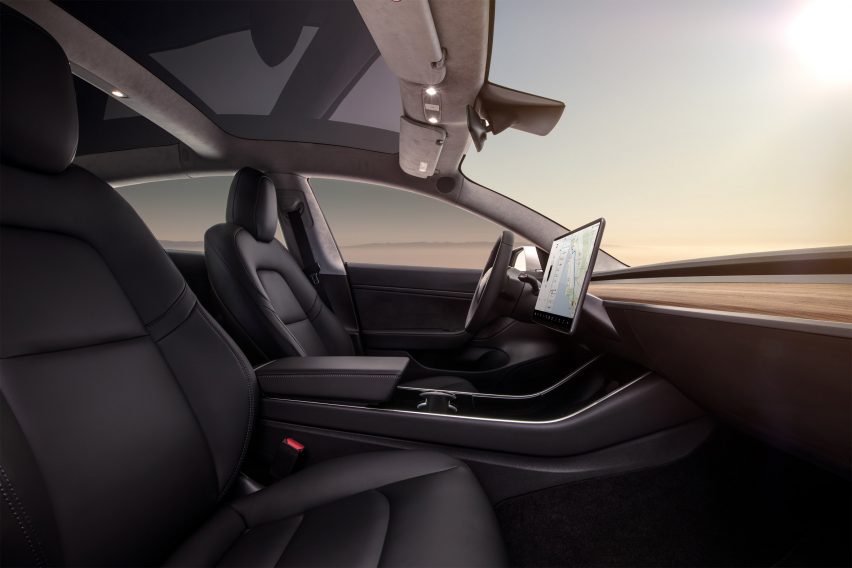
Current Tesla cars have limited self-driving capability through the Autopilot feature, but are designed to be fully driverless once a software update is installed.
The reaction from reviewers has been generally positive, with Bloomberg declaring that "driving Tesla's Model 3 changes everything" and The Verge saying it was "the car that Elon Musk had promised to make 14 years ago".
Elon Musk introduced the Model 3 at a Tesla event on Friday
At this stage, 50 Model 3s have been manufactured, but Musk believes production will ramp up to the point where 5,000 cars are being manufactured a week by the end of the year. Due to an already long waiting list, anyone who orders a Model 3 now can expect to receive it "towards the end of next year".
While the Model 3 may bring Tesla to the end goal of Musk's first master plan – or close to it – the company has already commenced work on Master Plan, Part Deux. This sees it focusing on fully autonomous transport, including buses and trucks.